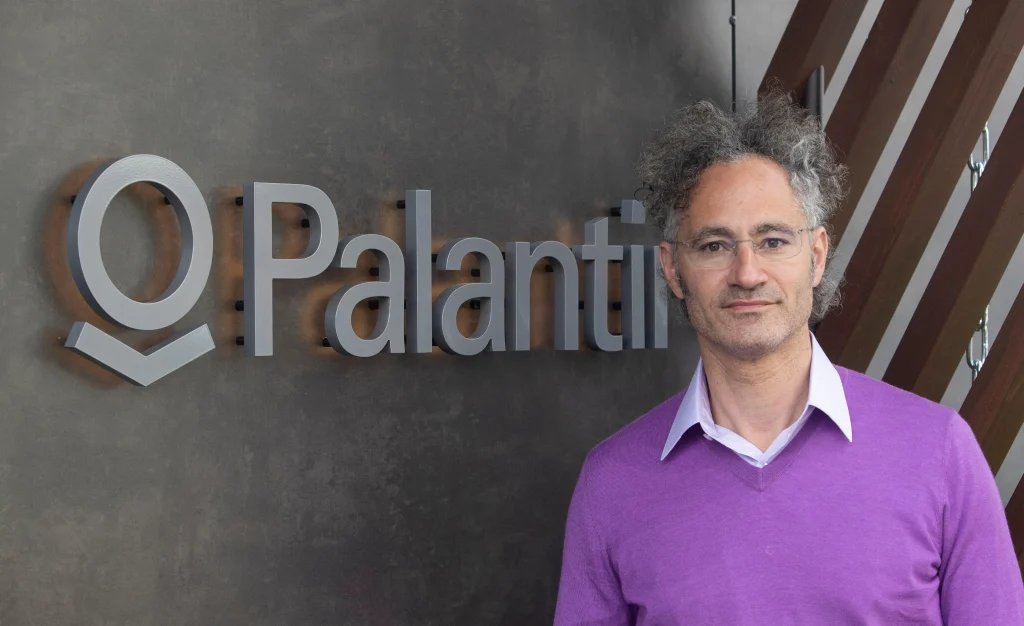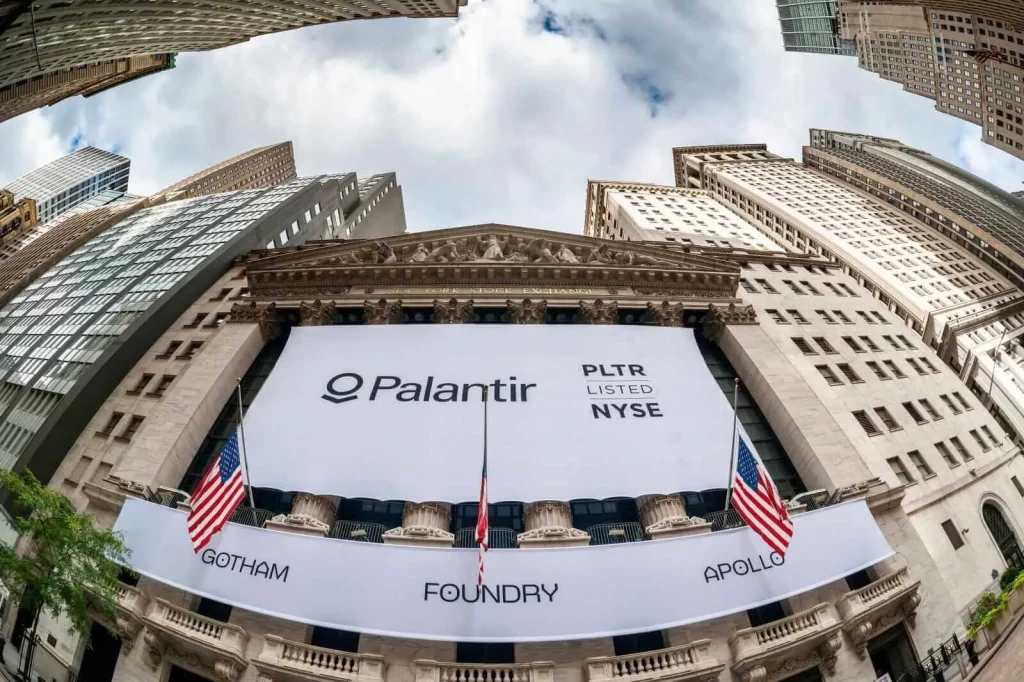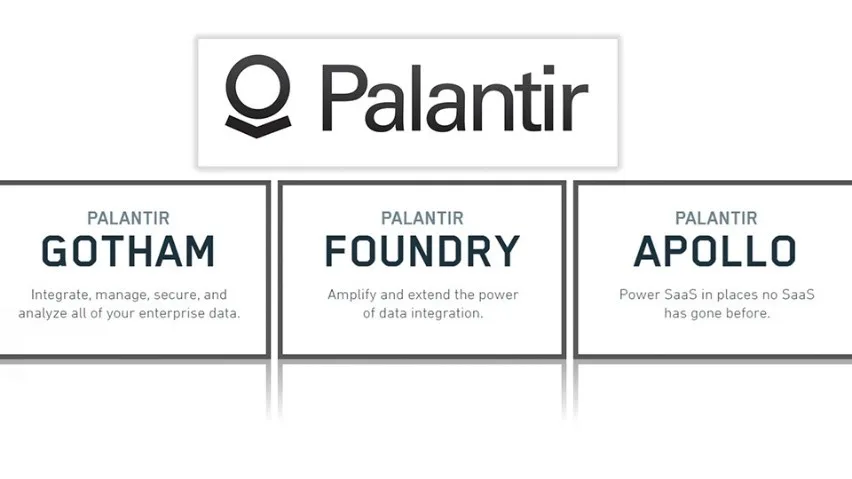
The Rise of the Most Dangerous Tech Company You’ve Never Heard Of
In the age of big data and surveillance capitalism, names like Google, Facebook, and Amazon dominate headlines. But behind the curtain, there’s another name you probably haven’t heard—Palantir Technologies.
This is not just another Silicon Valley startup.
Palantir is the silent engine powering some of the world’s most powerful institutions—from the CIA and NSA to the NHS in the UK, and even major financial institutions on Wall Street. It’s a company that started with a mission to fight terrorism—but now plays a pivotal role in predictive policing, pandemic tracking, immigration enforcement, warfare logistics, and even voter behavior modeling.
And unlike Apple or Microsoft, you can’t download Palantir. You can’t see its software in action. And most disturbingly, you might not even know when it’s being used on you.
This article explores Palantir’s shadowy rise—from a “startup for spies” funded by the CIA, to a global surveillance power with access to everything from your healthcare records to your daily movements.
What Is Palantir? The Ghost in the Machine
Palantir Technologies is a data analytics and artificial intelligence company that helps governments and corporations process, analyze, and visualize massive amounts of complex data. Unlike tools such as Excel or Google Analytics, Palantir’s platforms—Gotham, Foundry, and Apollo—can sift through millions of data points from thousands of sources in real time.
The goal? To make the invisible visible.
Palantir doesn’t just store data. It connects the dots between disparate sources—emails, GPS signals, bank transactions, social media posts, surveillance videos, and government databases—often in ways that are invisible to the public and classified by nature.
It is already:
- Tracking terrorists.
- Identifying fraudulent banking transactions.
- Helping militaries identify enemy movement.
- Monitoring immigrants.
- Predicting health outbreaks.
- Managing nuclear programs.
- Powering AI for war planning.
In short: Palantir is not a tech company. It’s an operational nerve center for global surveillance.
The Origin: Born for Spying, Built to Grow
Palantir was founded in 2003 by Peter Thiel, Alex Karp, Stephen Cohen, and Joe Lonsdale. Thiel, also a co-founder of PayPal and an early investor in Facebook, saw an opportunity to create a tool that could help the U.S. win the war on terror without eroding civil liberties.
Here’s where it gets interesting:
Palantir’s first backer was In-Q-Tel, the venture capital arm of the CIA. That’s right—Palantir was literally built to spy. Its early mission: help the U.S. government sift through massive data collected post-9/11 and find patterns to stop terrorism.
In its earliest days, Palantir worked secretly with:
- The CIA
- NSA
- Department of Defense
- FBI
- Special Forces on the ground in Iraq and Afghanistan
The Gotham software was battle-tested on the frontlines, helping to identify IED networks, track enemy movement, and target insurgents. Over time, its military-grade intelligence tools evolved into the default system for global data surveillance.

How Palantir Quietly Embedded Itself into Global Institutions
Palantir’s expansion was never noisy. It doesn’t run TV commercials or social media ads. Its marketing is done behind closed doors, in classified meetings and billion-dollar contracts.
Major Use Cases:
- Law Enforcement: LAPD, NYPD, and ICE use Palantir to build predictive policing systems, helping officers “anticipate” crimes based on historical data.
- Immigration Enforcement: Palantir helped ICE track, target, and deport immigrants by integrating data from utility bills, DMV records, and more.
- Health Agencies: The CDC and NIH used Palantir to manage COVID-19 data across all 50 states.
- Financial Institutions: JPMorgan, Credit Suisse, and hedge funds use Foundry to analyze risk, market behavior, and fraud detection.
Palantir is also used by:
| Country | Purpose |
| USA | Intelligence, defense, policing |
| UK | Healthcare (NHS), law enforcement |
| Germany | Military planning, COVID data |
| Australia | Border surveillance |
| Ukraine | War strategy and drone intelligence |

Tracking Americans: The Legal Loophole and Ethical Backlash
Palantir insists that it “doesn’t collect data”—it simply analyzes what others collect. But here’s the problem:
Palantir partners with agencies that collect the data. So effectively, it sees everything they see—and more.
For example:
- Immigration & Customs Enforcement (ICE) used Palantir to run a system called FALCON, which connected federal databases to track immigrants down to their home address.
- Los Angeles Police Department (LAPD) used Palantir to build “Chronic Offender” lists—often targeting Black and Latino men for increased surveillance, even without convictions.
- Fusion Centers across the U.S. used Palantir software to aggregate state, federal, and private data—including license plate scans, social media, gun purchases, and more.
The Legal Loophole:
Because Palantir doesn’t own the data, it bypasses many privacy laws. That allows it to process surveillance-level data without being regulated like Facebook or Google.

Why Wall Street Is Obsessed with Palantir
Palantir went public via direct listing in 2020, with a valuation of $21 billion. Since then, its stock has been the subject of massive investor speculation.
Why?
- Government Contracts Are Sticky: Once a military or intelligence agency adopts Palantir, they’re unlikely to ever switch. Renewal is almost guaranteed.
- Commercial Expansion: Palantir Foundry is now used by Fortune 500 companies for supply chain, energy optimization, and even ESG modeling.
- AI Integration: Palantir is positioning itself as a leader in military-grade AI, making it highly appealing to future warfare investments.
In the words of CEO Alex Karp:
“We are the default operating system for the defense and intelligence community.”
No wonder hedge funds are bullish.

Infiltrating the UK: From COVID to NHS Control
In 2020, the UK government gave Palantir access to the entire NHS data infrastructure during the COVID-19 crisis. This included:
- Patient health records
- Hospital admission rates
- Test results and demographic trends
The deal was supposed to be temporary, but Palantir is now bidding on a £480 million permanent contract to manage NHS data long-term.
Critics, including:
- Privacy International
- Open Rights Group
- Members of Parliament
…have raised alarms over allowing a U.S. spy-linked company to manage sensitive UK citizen health data.
Palantir says it won’t “own” the data, but ownership isn’t the issue—access is.

Peter Thiel: The Billionaire Visionary or Puppetmaster?
Thiel is more than a founder. He is Palantir’s ideological North Star.
He believes in:
- Libertarian values
- Technocratic governance
- Anti-democratic systems if they “work better”
Thiel famously stated:
“I no longer believe that freedom and democracy are compatible.”
He sees Palantir not just as a company—but as a tool to reshape the geopolitical balance of power, and he’s funded political movements and candidates aligned with his vision.
Palantir, under his shadow, has become a private intelligence agency—not held accountable to the public but operating at global scale.

The Tech, The Tools, The Threats
Palantir’s main products include:
Gotham
Used by governments for intelligence, counterterrorism, and law enforcement. Helps analysts find suspects, link events, and predict behavior.
Foundry
Used by businesses to optimize operations, supply chains, and analytics.
Apollo
Used for global deployment and mission-critical AI. It ensures Palantir’s software can operate in military theaters and disconnected environments.
Key Threats:
- Algorithmic bias can reinforce systemic inequality.
- Opaque operations mean citizens don’t know how decisions are made.
- Automated decisions in policing and healthcare can affect real lives—with zero human oversight.
- Militarization of AI could lead to autonomous targeting.

The Bigger Question: Who Regulates Palantir?
Unlike Facebook or Google, Palantir isn’t regulated as a data platform. It exists in a gray area, protected by:
- Government secrecy
- National security exemptions
- Private contracts
There’s no public oversight board. No transparency reports. No way to see how it’s being used in your city or country.
Palantir could be making decisions about you—and you’d never know.

Conclusion: Is Palantir the Future or a Warning?
Palantir presents one of the greatest paradoxes of our age:
- It helps fight terrorism, but may become a tool of tyranny.
- It improves health systems, but could commodify our biology.
- It enhances national security, but erodes civil liberty.
Peter Thiel’s dream of an omniscient platform has come true.

FAQs: Commonly Asked Questions About Palantir
❓ What does Palantir do?
Palantir builds advanced data analysis platforms used by governments, militaries, and corporations to track, predict, and manage behavior and operations using AI and big data.
❓ Is Palantir tracking me?
While Palantir doesn’t track individuals directly, it powers systems that do—including predictive policing, immigration databases, and health systems that may include your data.
❓ Is Palantir linked to the CIA?
Yes. Palantir received early investment from In-Q-Tel, the CIA’s venture capital firm. It was originally built to aid in counterterrorism and intelligence.
❓ Is Palantir public?
Yes, Palantir Technologies is publicly traded on the NYSE under the ticker symbol PLTR.
❓ Why is Palantir controversial?
Its lack of transparency, use in mass surveillance, potential for abuse in predictive policing, and deep government ties have made it one of the most ethically debated companies in tech.


